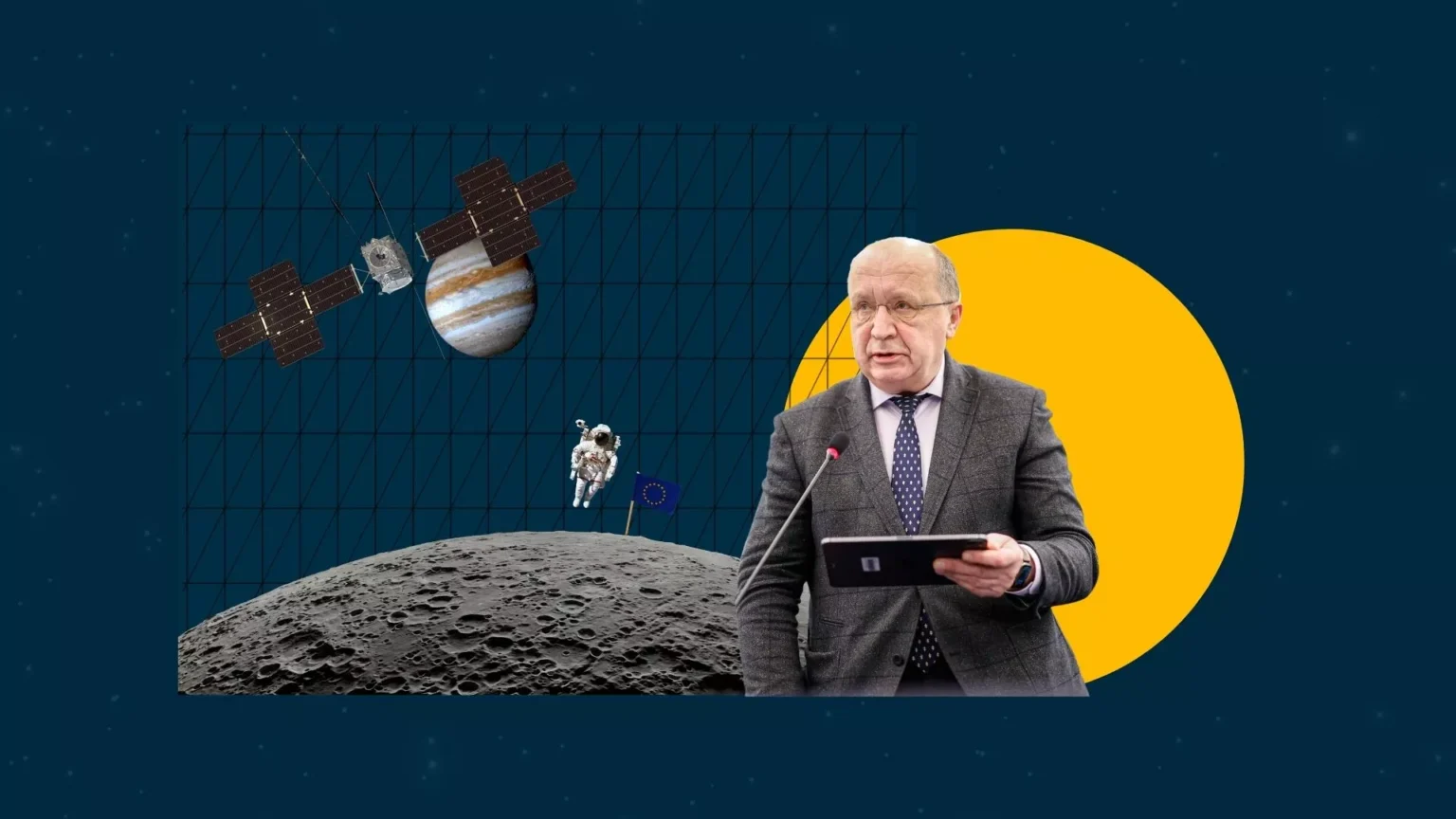European Commission President Ursula von der Leyen’s second term will introduce the first-ever commissioner for defence and space, but analysts and industry experts argue that the mission and support for this new role fall short of the recognition seen at the policy level. Andrius Kubilius, the Lithuanian commissioner-designate, has been assigned this newly created portfolio, responsible for both EU defence and space. However, concerns are growing that space will be treated as a secondary priority, with limited ambition, despite the significant challenges it faces.
Reinhilde Veugelers, a senior fellow at the Brussels-based think tank Bruegel, expressed her concerns to Euronews: “I’m a bit worried that because there’s so little work being done on space [policy], there will be no interest, no budget, no nothing.”
In her mission letter to Kubilius, von der Leyen outlined a mandate of continuity, calling for further implementation of the EU’s space strategy for security and defence, and ensuring the bloc’s ‘cost-effective access to space.’ However, she only anticipates two new proposals in the next five years: an EU space law, expected earlier this year, and a space data economy strategy to unlock the potential of space-derived products and technologies.
Tomas Hrozensky, senior researcher at the European Space Policy Institute (ESPI), highlighted the gap between policy recognition and practical support. While space’s role in security and defence has gained unprecedented attention, the institutional and programmatic support, along with the industrial dimension, remains insufficient. European funding for space programs is fragmented and amounts to only 20% of the U.S. level, creating an imbalance with competitors like the U.S. and China, particularly in industrial capacity and workforce specialization, according to a report by Mario Draghi on competitiveness.
Draghi’s report accurately identifies the challenges facing the space industry, but some argue it fails to propose bold solutions, particularly regarding the potential for commercial space activities. A policy brief from ESPI also notes that there is no call for increased funding in security and defence beyond current member state budgets, nor is there a proposal for human space exploration.
The space economy is projected to be worth $1 trillion (€899bn) by 2040, with its broader impact on sectors like batteries, semiconductors, and pharmaceuticals valued at around $7.9 trillion, according to the Boston Consulting Group. Veugelers emphasized the importance of commercial space activities, where Europe lags significantly, adding that this sector holds immense potential for value creation and capture that should be prioritized in industrial policy.
Kubilius faces several key challenges: insufficient funding for research and development, limited access to financing for companies, a fragmented governance structure, and a lack of collaboration among EU member states. These issues are critical to the sustainability of supply chains, the preservation of expertise, and the EU’s strategic autonomy, according to Olivier Lemaitre, secretary general of ASD-Eurospace. He urged the EU to devise an industrial policy for space in partnership with member states to address the security of European space supply chains.
While the EU remains competitive in areas like Earth observation, navigation, and exploration, it has lost its leading position in commercial launchers (Ariane 4-5) and geostationary satellites, forcing reliance on U.S. rockets like SpaceX for satellite launches. Recent disruptions, including the COVID-19 pandemic and Russia’s invasion of Ukraine, have further weakened the EU’s space industry, leading to lower profitability and reliance on critical components like semiconductors and detectors.
Lemaitre believes the EU must stabilize production, scale up manufacturing, use recurring systems for operational missions, and develop standardized interfaces. For Veugelers, integrating the space and defence portfolios more closely could be a positive step in the short term, noting, “We’re not exploiting the potential complementarities that would make defence and space work more effectively.”
